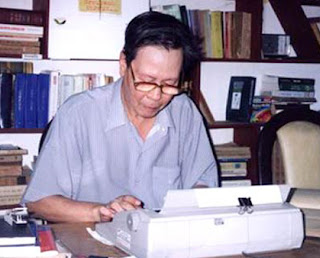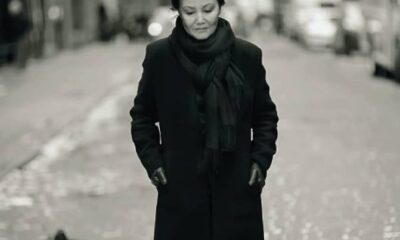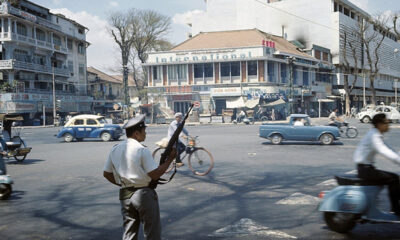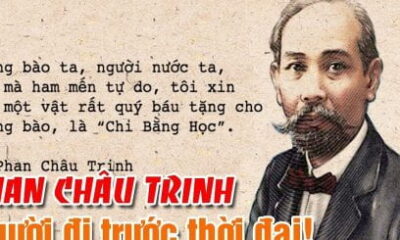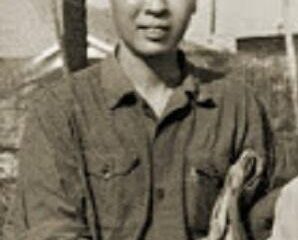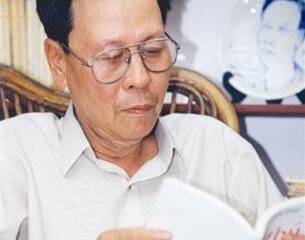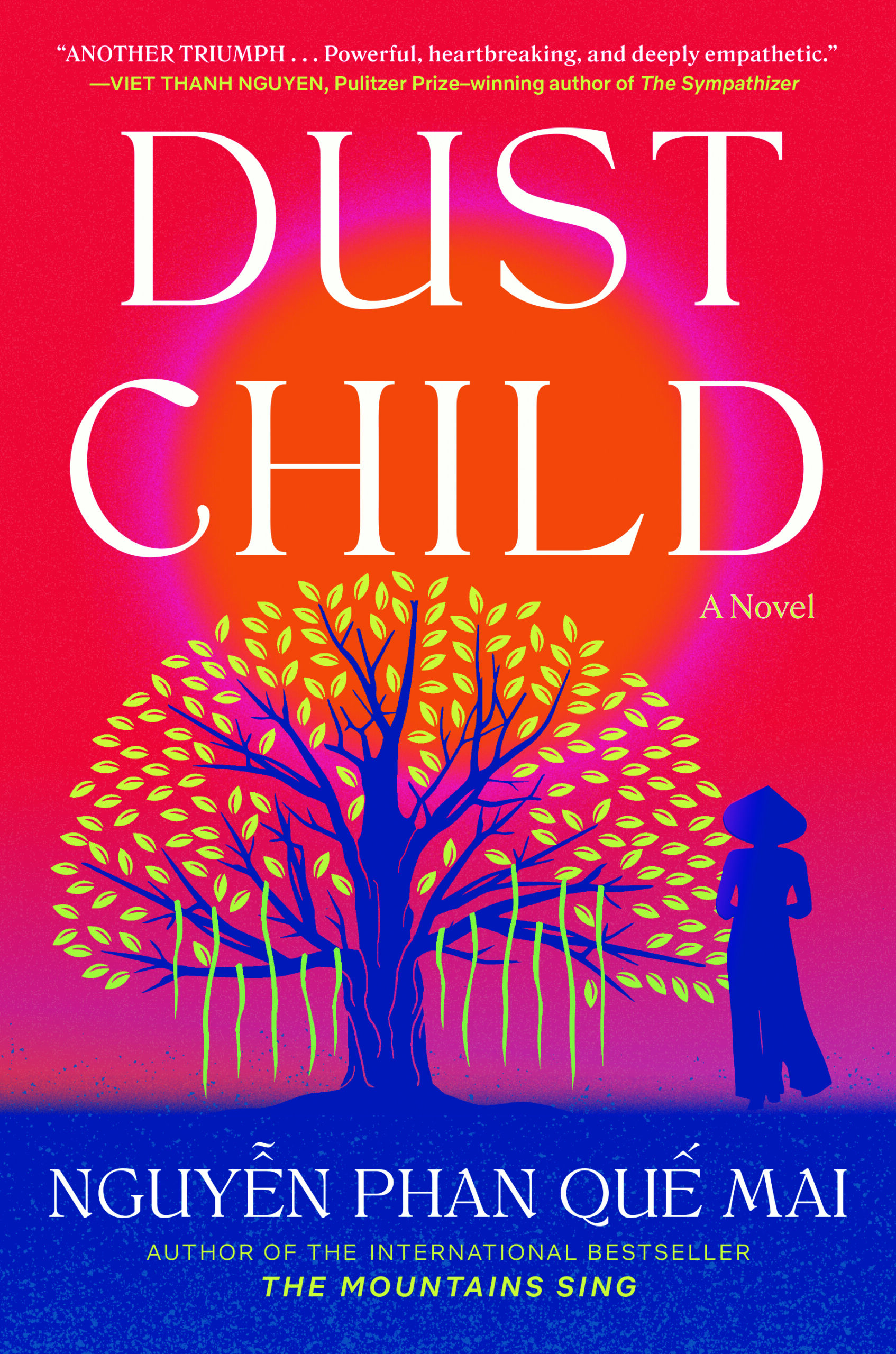Editor’s Note: The following excerpt is from a memoir by the esteemed writer Nguyễn Mạnh Khải (1930-2008), celebrated as one of the foremost literary figures in communist Vietnam. His lifetime was marked by numerous accolades, including the Le Thanh Nghị Literature Prize (Regional Level III, 1951), the Vietnamese Arts and Literature Prize (1951-1952), the Vietnamese Writers’ Association Prize (1982), the Southeast Asian Literature Award (2000), and the prestigious Ho Chi Minh Prize for Literature and Art (2000). Originally penned in Vietnamese and published posthumously in 2006, this collection has been translated by our editor Vinh Pham. The memoir will be presented in six installments.
Political Essays – 2006
Nguyễn Khải
13.
Human beings have two eyes that look out into the external material world, but there is no eye that turns inward to introspect, to control its own spiritual world, so it is partially blind. It’s like lacking inner ears, unable to hear the faint whispers within itself every night. These innate imperfections make humans incomplete and contribute to the downfall of many valiant figures in their later years.
However, there are a few individuals with the ability to perceive movement both within and outside, to hear the faintest sounds from both realms. They possess no extraordinary physical structure; rather, their strong spiritual capabilities compensate for these inherent shortcomings. Many memoirs of prominent figures, whether political or cultural, lack their raw and primal essence, the animalistic part of humans that gives rise to yet unformed atrocities, to the petty, to the absurd, kept in check, concealed, the part they want to forget, which can easily turn them into wolves among their own kind if someone remembers and recalls within the community or among colleagues.
The grand battle, the tragic struggle within oneself, is always magnificent, beautiful, vividly contrasting colors because it fully exposes the essence of BEING HUMAN in each individual. Not everyone can create such a sacred battle, for the battlefield lies within, where one is both the challenger and the challenged, even in defeat, it’s the divine’s defeat. Such a profound task, so monumental, yet one dares to think of it as a task for the masses, for those who have not prepared an inner gaze, an inner listening for themselves, living a lifetime in self-satisfaction, in trance, inviting introspection, looking back at oneself, to have accurate judgments and adjustments!
The General Secretary has initiated a virtual battle, thus he only receives virtual outcomes.
A Party, a political system that employs criticism and self-criticism as sharp weapons to resolve all internal contradictions, what if these tools become unusable? With no opposing party, no opposing public opinion through the media and mass demonstrations, how then to identify and rectify all troubles, even potential violence, should it arise? There is still a way: creating a constantly tense political situation (a war might break out, a rebellion could happen) to force citizens to live under strict rules of wartime, in totalitarian regimes, there are only two institutions that wield power over society: the ideological and propaganda apparatus, and the security forces. One to control, one to counter. And when unusual events occur, there’s only one solution: repression, arrests, trials of the ringleaders. This approach is both swift and stable, uncomplicated, not burdened by excessive laws and reasoning like in capitalist countries. Petty disturbances are actually the atmosphere of authoritarian rulers. They are not afraid of chaos. They even orchestrate palace intrigues like in the Soviet Union and Eastern European countries, or a struggle among the people themselves, as seen in China. Without the smell of gunpowder, the scent of blood, and the furious screams of the crowd, how will those in power know how to breathe!
14.
The collective doesn’t produce literature because it lacks individual feelings, personal experiences, and distinct personalities. It is anonymous. A contented confession, joyful laughter, a life that’s abundant can’t find a place in literature. Literature always belongs to the cries of humanity, demanding what’s missing: freedom, justice, happiness…
Human life is a sea of suffering, and the spiritual aspirations are so profound that literature and art are needed to compensate. But when everything is known, complete, and content, there’s no more room for religion, no more philosophy, and certainly literature cannot remain. It would die of suffocation, lacking those mysterious spaces for contemplation, dreaming, and breathing.
The promises of communism to be fulfilled in the future will end up killing humanity if that reality comes to pass. The deity doesn’t need fat worms crawling around its feet. Fortunately, those are just lies, self-deception of people who’ve had to endure hundreds of years in misery, in despair.
Aim for paradise? Whether it’s earthly or celestial, no one can bear it. To live without worry, desire, and struggle is the life of a worm. Could worms ever raise their stubby heads to produce philosophy and poetry?
The things written above aren’t products of my imagination, but from my own experiences. During my younger years, both my wife and I were military personnel, raising four children, living in a flood-prone riverside shack of only 15 square meters. Our meals consisted of mostly noodles and a small portion of rice that required careful cleaning before cooking.
And as for the food? Let’s not talk about it, everyone ate the same way – consuming pickles and fermented fish sauce for decades becomes customary. Our home had only two beds, one table, two chairs; we entertained guests there, served meals, helped our children study, and I, as a writer, had my desk there too.
Night after night, lying between our two eldest sons who twisted and turned, their restless kicking and squirming, while trying to fan them to sleep, I’d dream of a future day when our children had grown, and I would have my own room to write, to entertain friends, and every meal would have fish or meat, perhaps even a bit of wine.
I wouldn’t need to worry about raising children, or the countless trivialities for survival. I could read, contemplate, go out with friends, and write. Surely, I’d produce a book or two that would endure. Now, in my seventies, I have everything I desired, and it can be said, even beyond my desires. I have lived fully, more extravagantly than many writers I know from Eastern European countries.
And I thought if communism succeeded in Vietnam, it could only offer me this much. Unfortunately, now, I no longer possess the intellectual capacity for work, nor the need to demand anything. The life of a perpetual diner has suffocated every idea within me and has even killed the army of noble ideals, revealing them to be hollow and soulless. A writer without words is simply a dead body. What difference is there between the corpse of a human and the corpse of a worm, that requires differentiation?
15.
I had a very sad childhood and grew up amidst people with unfortunate destinies, which is why by the age of 14 or 15, I saw life as an old man does. That is, with a rather pessimistic view. The society I live in isn’t quite perfect, and the people I encountered weren’t perfect either. I was accustomed to imperfections to the extent that encountering things too beautiful, too perfect, made me skeptical and fearful.
The inherent fear was passed down to me by my mother. She had already been through one marriage before meeting my father. Her first husband’s life was splendid in every aspect – he was young, held a high position in society, wealthy, and they had a son within a year of marriage. Yet, their union lasted only three years before they separated. Her second marriage, to my father, was less fortunate in every way. He was also young, working as a clerk at the French embassy, but he already had a wife and two children, so their relationship had to remain clandestine. My mother believed it was her fate, her acceptance, yet she worried that my father might leave if this affair brought more troubles to his official family. My two elder brothers are exact replicas of her. What we received from childhood shapes us for life. Externally, I might have an air of an elegant gentleman, but at heart, I belong to the lineage of the poor, without any influential background, so I’m very aware of my place. I accept what’s given, don’t demand what’s not, and only hope not to be bothered by anyone.
My younger brother, five years my junior, married late, retired early, and in his youth, he served my mother, and as he grew older, he went to the market, cooked, and cared for his own family. Throughout his life, he simply smiled – a patient smile, content with what he had. I, on the other hand, am different. Outwardly, everyone knows I am modest, patient, causing minimal trouble to others, and never daring to pick fights with anyone. Yet, internally, I hold ambitions. To become an official or a wealthy man, I dare not, for I lack the courage to advance through deceit or business dealings. I only have one singular wish: to write until old age.
With my self-awareness, I realize that I must live a long time and write extensively to possibly create one or two good books – books that might be considered good only in their era, not necessarily timeless. I acknowledge that I possess an inner eye and an inner ear from a young age. To observe, eavesdrop on others, to see if they love or hate me. As I grew older, my ability for self-examination sharpened. And I discovered the advantage of concealing oneself. Trang Tử once said: “A bird that flies too high can avoid the arrow and the net; a mouse that digs deep can escape the smoky fire.”

 Politics & Economy4 years ago
Politics & Economy4 years ago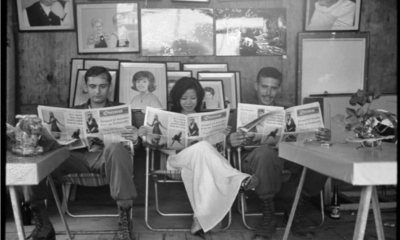
 Politics & Economy2 years ago
Politics & Economy2 years ago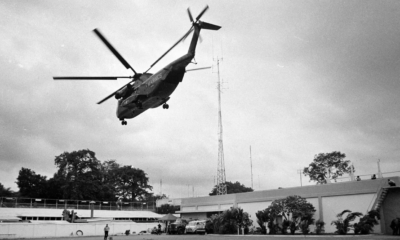
 After 19751 year ago
After 19751 year ago
 ARCHIVES5 years ago
ARCHIVES5 years ago
 Society & Culture5 years ago
Society & Culture5 years ago
 Politics & Economy4 years ago
Politics & Economy4 years ago
 Politics & Economy5 years ago
Politics & Economy5 years ago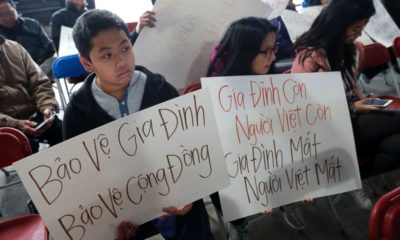
 Vietnamese-America4 years ago
Vietnamese-America4 years ago
